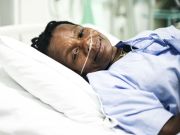MONDAY, Aug. 17, 2020 (HealthDay News) — Although minorities are paying a disproportionate price in the rate of COVID-19 illnesses and deaths, they are underrepresented in clinical trials, a new study finds.
The researchers call upon the government, medical journals and funders of research to make sure trials include minorities so that the results can be extrapolated to the U.S. population.
In the Adaptive COVID-19 Treatment Trial involving more than 1,000 patients testing the efficacy of the antiviral remdesivir, only 20% of participants are Black and 23% are Hispanic or Native American.
In the clinical trial funded by the drug’s maker, Gilead, with nearly 400 patients, only 11% are Black and less than 1% are Hispanic or Native American.
“The overwhelming majority of the patients in both of those large clinical trials were Caucasians,” said researcher Daniel Chastain, a clinical assistant professor of pharmacy at the University of Georgia’s Albany campus.
“Knowing that African Americans die at a higher rate than Caucasians, can I say that this medication will work in them as well? Yes, they enrolled a bunch of patients and yes they got these data out as fast as possible, but can we use this information to inform treatments in all patients?” he said in a university news release.
The remdesivir trials found that patients given the drug recovered from COVID-19 a little faster than those given a placebo. But minority patients often have more severe symptoms and complications from the disease, so it’s not clear if they will respond as well to the drug.
“Why aren’t we putting up infrastructure for clinical trial sites in areas that were heavily hit by COVID?” Chastain said. “If we would’ve included Albany, those clinical trials would’ve been more diversified and would’ve been much more representative of what the coronavirus pandemic looks like in our area and throughout the U.S.”
The report was published Aug. 12 in the New England Journal of Medicine.
More information
For more on COVID-19, head to the U.S. Centers for Disease Control and Prevention.
Copyright © 2026 HealthDay. All rights reserved.

